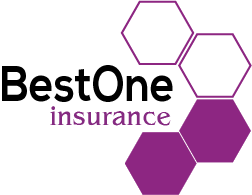In the ever-growing world of short-term rentals, where individuals can easily turn their homes into temporary lodging, liability considerations become increasingly important.
Property owners and managers must navigate many potential risks and legal obligations as they open their doors to countless guests. The liability landscape for short-term rental properties can be complex and nuanced, from guest injuries and safety concerns to property damage and maintenance issues.
Guest Injuries and Safety
Ensuring guest safety is paramount for short-term rental property owners and hosts. However, accidents can still occur, and property owners must be prepared to address the potential liability issues that may arise.
One common concern is guest negligence, where guests may engage in risky behavior or fail to follow safety guidelines, resulting in injury. In such cases, liability insurance coverage is essential for property owners to protect themselves from potential lawsuits. Liability insurance can cover medical expenses, legal fees, and potential settlements in the event of a guest injury.
It is crucial for property owners to carefully review their insurance policies and ensure they have adequate coverage to protect against guest negligence claims. By taking proactive steps to prioritize guest safety and having liability insurance coverage in place, property owners can mitigate potential risks and ensure a positive guest experience.
Property Damage and Maintenance
Property damage and maintenance are important for short-term rental property owners and hosts. Ensuring that your property is well-maintained and addressing any damages promptly can help protect your investment and ensure a positive experience for your guests. Here are three key considerations:
- Regular Maintenance: Regularly inspecting and maintaining your property can help identify and address any potential issues before they become major problems. This includes routine tasks such as checking plumbing, electrical systems, and HVAC units and ensuring that appliances and furniture are in good working condition.
- Repair Costs: A plan for handling repair costs is crucial. Unexpected damages can occur, and having funds set aside specifically for repairs can help alleviate financial stress. Additionally, understanding the terms of your insurance coverage and any limitations or exclusions related to property damage is essential.
- Insurance Coverage: Having adequate insurance coverage for your short-term rental property is highly recommended. This should include liability coverage in case of any property damage caused by guests. Review your policy carefully to ensure that it adequately protects you against repair costs and any potential liabilities that may arise.
Legal and Financial Risks
One must consider the potential legal and financial risks of owning and operating a short-term rental property. These risks include tenant disputes and insurance coverage.
Tenant disputes can arise from property damage, noise complaints, or disagreements over rental terms. Resolving these disputes can be time-consuming and costly, potentially leading to legal expenses and negatively impacting the property owner’s reputation.
Additionally, insurance coverage is an essential consideration for short-term rental properties. Traditional homeowner’s insurance policies may not provide adequate coverage for short-term rentals, leaving the property owner vulnerable to potential liability claims.
Property owners must ensure they have the appropriate insurance coverage in place to protect against potential financial losses and legal liabilities that may arise from operating a short-term rental property.


